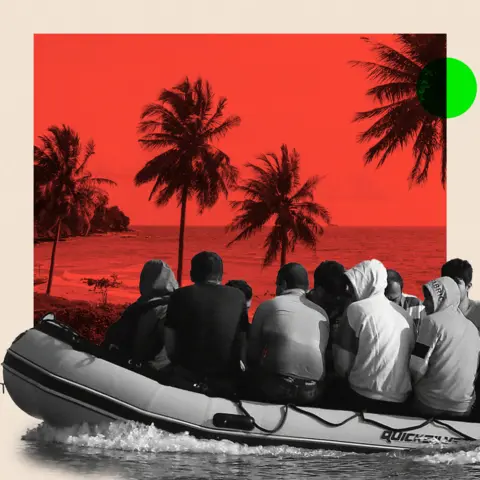 BBC
BBCMore Vietnamese attempted small-boat Channel crossings in the first half of 2024 than any other nationality. Yet they are coming from one of the world’s fastest-growing economies. Why, then, are so many risking their lives to reach Britain?
Phuong looked at the small inflatable boat and wondered whether she should step in. There were 70 people packed in, and it was sitting low in the water. She recalls the fear, exhaustion and desperation on their faces. There weren’t enough lifejackets to go around.
But Phuong was desperate. She says she had been stuck in France for two months, after travelling there from Vietnam via Hungary, sleeping in tents in a scrubby forest.
Already she had refused to travel on one boat because it seemed dangerously overcrowded, and previously had been turned back in the middle of the Channel three times by bad weather or engine failure.
Her sister, Hien, lives in London, and recalls that Phuong used to phone her from France in tears. “She was torn between fear and a drive to keep going.
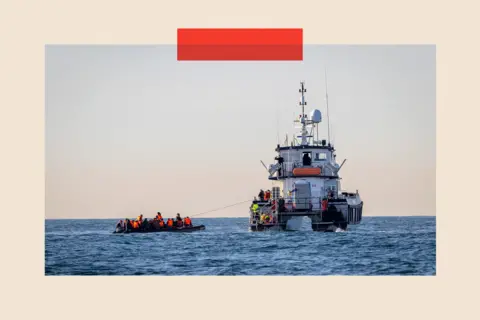 Getty Images
Getty Images“But she had borrowed so much – around £25,000 – to fund this trip. Turning back wasn’t an option.” So, she climbed on board.
Today Phuong lives in London with her sister, without any legal status. She was too nervous to speak to us directly, and Phuong is not her real name. She left it to her sister, who is now a UK citizen, to describe her experiences.
In the six months to June, Vietnamese made up the largest number of recorded small boat arrivals with 2,248 landing in the UK, ahead of people from countries with well-documented human rights problems, including Afghanistan and Iran.
The extraordinary efforts made by Vietnamese migrants to get to Britain is well documented, and in 2024 the BBC reported on how Vietnamese syndicates are running successful people-smuggling operations.
It is not without significant risks. Some Vietnamese migrants end up being trafficked into sex work or illegal marijuana farms. They make up more than one-tenth of those in the UK filing official claims that they are victims of modern slavery.
And yet Vietnam is a fast-growing economy, acclaimed as a “mini-China” for its manufacturing prowess. Per capita income is eight times higher than it was 20 years ago. Add to that the tropical beaches, scenery and affordability, which have made it a magnet for tourists.
So what is it that makes so many people desperate to leave?
A tale of two Vietnams
Vietnam, a one-party Communist state, sits near the bottom of most human rights and freedom indexes. No political opposition is permitted. The few dissidents who raise their voices are harassed and jailed.
Yet most Vietnamese have learned to live with the ruling party, which leans for legitimacy on its record of delivering growth. Very few who go to Britain are fleeing repression.
Nor are the migrants generally fleeing poverty. The World Bank has singled Vietnam out for its almost unrivalled record of poverty reduction among its 100 million people.
Rather, they are trying to escape what some call “relative deprivation”.
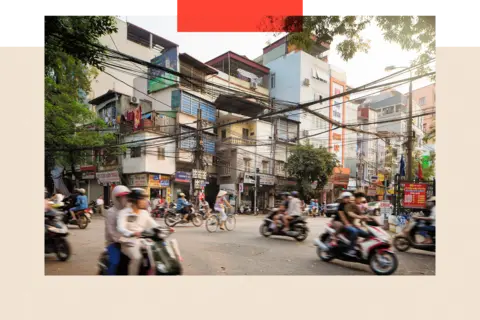 Getty Images
Getty ImagesDespite its impressive economic record, Vietnam started far behind most of its Asian neighbours, with growth only taking off well after the end of the Cold War in 1989. As a result, average wages, at around £230 a month, are much lower than in nearby countries like Thailand, and three-quarters of the 55-million-strong workforce are in informal jobs, with no security or social protection.
“There is a huge disparity between big cities like Hanoi and rural areas,” says Nguyen Khac Giang, a Vietnamese academic at the Institute of South East Asian Studies-Yusof Ishak Institute in Singapore. “For a majority of workers with limited skills, there is a glass ceiling. Even if you work 14 hours a day you cannot save enough to build a house or start a family.”
This was what Phuong felt, despite coming from Haiphong, Vietnam’s third-largest city.
Her sister Hien had made it to Britain nine years earlier, smuggled inside a shipping container. It had cost her around £22,000 but she was able to pay that back in two years, working long hours in kitchens and nail salons. Hien married a Vietnamese man who already had British citizenship, and they had a daughter; all three are now UK citizens.
In Haiphong, jobs were scarce after the pandemic and at 38 years old, Phuong wanted what her sister had in London: the ability to save money and start a family.
“She could survive in Vietnam, but she wanted a home, a better life, with more security,” explains Hien.
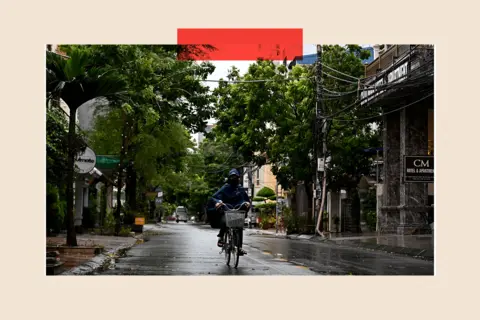 Getty Images
Getty ImagesLan An Hoang, a professor in development studies at Melbourne University, has spent years studying migration patterns. “Twenty to thirty years ago, the urge to migrate overseas was not as strong, because everyone was poor,” she says. “People were happy with one buffalo, one motorbike and three meals a day.
“Suddenly a few people successfully migrated to countries like Germany or the UK, to work on cannabis farms or open nail salons. They started to send a lot of money home. Even though the economic conditions of those left behind have not changed, they feel poor relative to all these families with migrants working in Europe.”
‘Catch up, get rich’
This tradition of seeking better lives overseas goes back to the 1970s and 80s, when Vietnam was allied to the Soviet Union following the defeat of US forces in the south.
The state-led economy had hit rock bottom. Millions were destitute; some areas suffered food shortages. Tens of thousands left to work in eastern bloc countries like Poland, East Germany and Hungary.
This was also a time when 800,000 mainly ethnic Chinese boat people fled the communist party’s repressive actions, making perilous sea journeys across the South China Sea, eventually resettling in the USA, Australia or Europe.
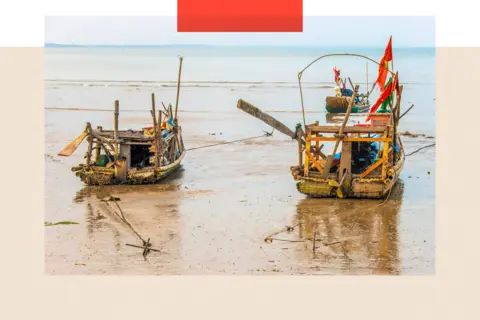 Getty Images
Getty ImagesThe economic hardships of that time threatened the legitimacy of the communist party, and in 1986 it made an abrupt turn, abandoning the attempt to build a socialist system and throwing the doors open to global markets. The new theme of Vietnam’s national story was to catch up, and get rich, any way possible. For many Vietnamese, that meant going abroad.
“Money is God in Vietnam,” says Lan An Hoang. “The meaning of ‘the good life’ is primarily anchored in your ability to accumulate wealth. There is also a strong obligation to help your family, especially in central Vietnam.
“That is why the whole extended family pools resources to finance the migration of one young person because they believe they can send back large sums of money, and facilitate the migration of other people.”
New money: spoils of migration
Drive through the flat rice fields of Nghe An, one of Vietnam’s poorer provinces lying south of Hanoi, and where there were once smaller concrete houses, you will now find large, new houses with gilded gates. More are under construction, thanks, in part, to money earned in the West.
The new houses are prominent symbols of success for returnees who have done well overseas.
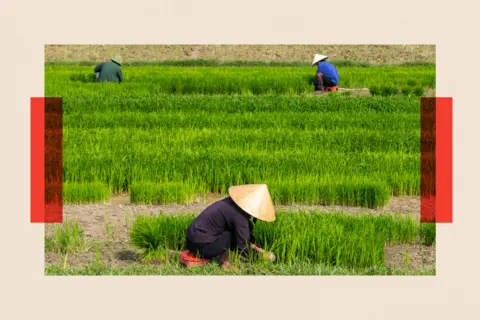 Getty Images
Getty ImagesVietnam is now enjoying substantial inflows of foreign investment, as it is considered an alternative to China for companies wanting to diversify their supply chains. This investment is even beginning to reach places like Nghe An, too.
Foxconn, a corporate giant that manufactures iPhones, is one of several foreign businesses building factories in Nghe An, offering thousands of new jobs.
But monthly salaries for unskilled workers only reach around £300, even with overtime. That is not enough to rival the enticing stories of the money to be made in the UK, as told by the people smugglers.
From travel agents to labour brokers
The business of organising the travel for those wishing to leave the province is now a very profitable one. Publicly, companies present themselves as either travel agents or brokers for officially-approved overseas labour contracts, but in practice many also offer to smuggle people to the UK via other European countries. They usually paint a rosy picture of life in Britain, and say little about the risks and hardships they will face.
“Brokers” typically charge between £15,000 and £35,000 for the trip to the UK. Hungary is a popular route into the EU because it offers guest-worker visas to Vietnamese passport holders. The higher the price, the easier and faster the journey.
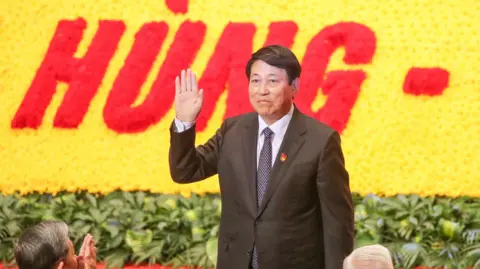 Shutterstock
ShutterstockThe communist authorities in Vietnam have been urged by the US, the UK and UN agencies to do more to control the smuggling business.
Remittances from abroad earn Vietnam around £13bn a year, and the government has a policy of promoting migration for work, although only through legal channels, mostly to richer Asian countries.
More than 130,000 Vietnamese workers left in 2024 under the official scheme. But the fees for these contracts can be high, and the wages are much lower than they can earn in Britain.
The huge risks of the illicit routes used to reach the UK were brought home in 2019, when 39 Vietnamese people were found dead in Essex, having suffocated while being transported inside a sealed container across the Channel.
Yet this has not noticeably reduced demand for the smugglers’ services. The increased scrutiny of container traffic has, however, pushed them to find alternative Channel crossings, which helps explain the sharp rise in Vietnamese people using small boats.
‘Success stories outweigh the risks’
“The tragedy of the 39 deaths in 2019 is almost forgotten,” says the cousin of one of the victims, Le Van Ha. He left behind a wife, two young children and a large debt from the cost of the journey. His cousin, who does not want to be named, says attitudes in their community have not changed.
“People hardly care anymore. It’s a sad reality, but it is the truth.
“I see the trend of leaving continuing to grow, not diminish. For people here, the success stories still outweigh the risks.”
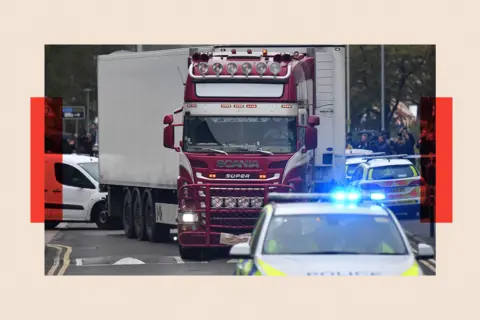 Getty Images
Getty ImagesThree of the victims came from the agricultural province of Quang Binh. The headteacher of a secondary school in the region, who also asked not to be named, says that 80% of his students who graduate soon plan to go overseas.
“Most parents here come from low-income backgrounds,” he explains. “The idea of [encouraging their child to] broaden their knowledge and develop their skills is not the priority.
“For them, sending a child abroad is largely about earning money quickly, and getting it sent back home to improve the family’s living standards.”
In March the UK Home Office started a social media campaign to deter Vietnamese people from illegal migration. Some efforts were also made by the Vietnamese government to alert people to the risks of using people-smugglers. But until there are more appealing economic opportunities in those provinces, it is likely the campaigns will have little impact.
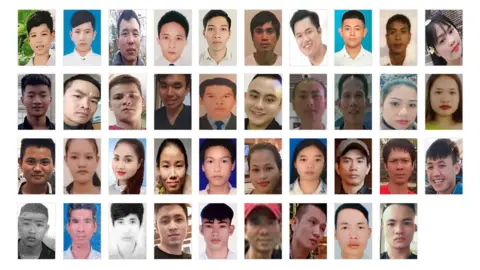
“They cannot run these campaigns just once,” argues Diep Vuong, co-founder of Pacific Links, an anti-trafficking organisation. “It’s a constant investment in education that’s needed.”
She has first-hand experience, leaving Vietnam to the US in 1980 as part of the exodus of Vietnamese boat people.
“In Vietnam, people believe they have to work hard, to do everything for their families. That is like a shackle which they cannot easily escape. But with enough good information put out over the years, they might start to change this attitude.”
But the campaigns are up against a powerful narrative. Those who go overseas and fail – and many do – are often ashamed, and keep quiet about what went wrong. Those who succeed come back to places like Nghe An and flaunt their new-found wealth. As for the tragedy of the 39 people who died in a shipping container, the prevailing view in Nghe An is still that they were just unlucky.
Top image credit: Getty Images
BBC InDepth is the new home on the website and app for the best analysis and expertise from our top journalists. Under a distinctive new brand, we’ll bring you fresh perspectives that challenge assumptions, and deep reporting on the biggest issues to help you make sense of a complex world. And we’ll be showcasing thought-provoking content from across BBC Sounds and iPlayer too. We’re starting small but thinking big, and we want to know what you think – you can send us your feedback by clicking on the button below.
Article by:Source



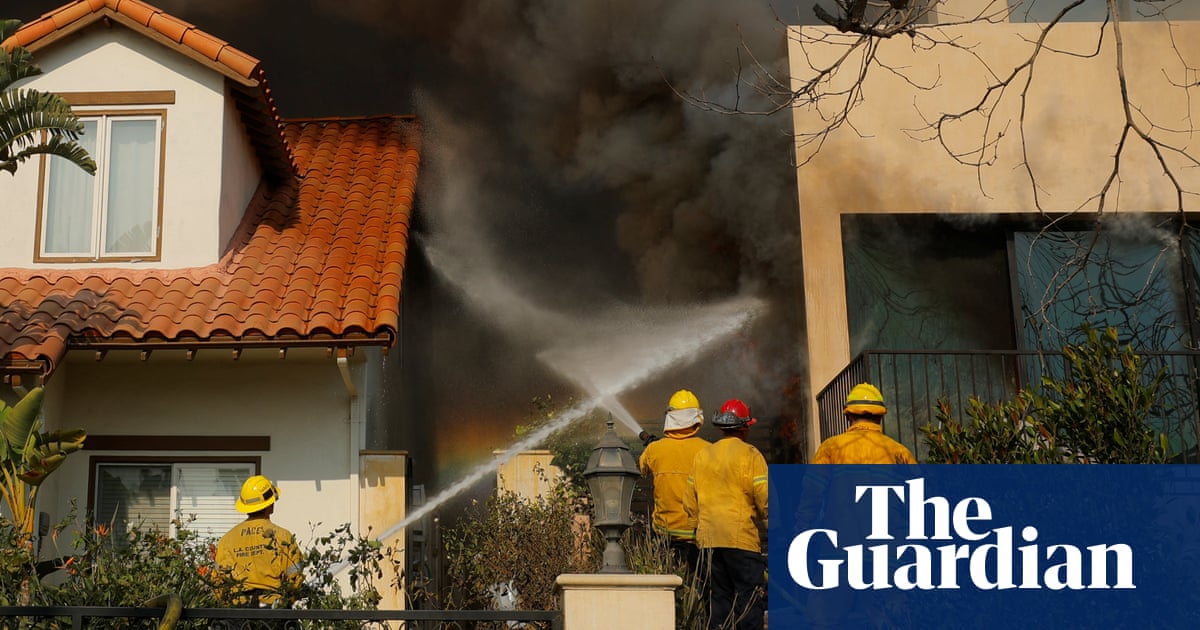



















Pingback: The real reason so many are fleeing Vietnam - SkyLine News , Your Daily Source